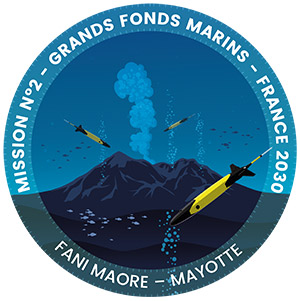France 2030: Ifremer entrusts ALSEAMAR with the design of a deep-sea glider capable of reaching 3,500 meters

 A new deep-sea glider to advance scientific research on the deep ocean
A new deep-sea glider to advance scientific research on the deep ocean
Underwater gliders are revolutionary tools for ocean exploration: autonomous and remotely operated, they carry a suite of sensors and can currently traverse the oceans to collect oceanographic data—from physics to biology—from the surface down to about 1,000–1,200 meters for scientific research.
Today, as the deep ocean lies at the heart of major global scientific and societal challenges, the marine science community has a strong need for a glider capable of diving to depths of up to 3,500 meters.
First deployments in the mediterranean and then off mayotte
Once the design phase of this new glider is complete, an initial field demonstration will take place in the Mediterranean Sea to observe variations in the physical and biogeochemical properties of deep waters, and to assess the impacts of climate change. This mission will be conducted as part of the MOOSE National Observation Service, coordinated by CNRS-INSU.
Several prototypes will then be deployed for one year off the coast of Mayotte to enhance knowledge of underwater hazards and geological and seismic risks linked to the Fani Maoré submarine volcano, discovered in 2019.
The new data collected during these deployments will complement those gathered since September 2021 by ALSEAMAR’s SEAEXPLORER gliders (capable of operating at depths up to 1,250 meters) at the request of Ifremer, within the framework of the Mayotte Volcanological and Seismological Monitoring Network (REVOSIMA).
These future deployments will not only expand scientific knowledge in these key regions of the globe but also validate this new tool for deep-ocean exploration and monitoring.
The new deep-sea glider will join the extensive fleet of underwater vehicles available to the French scientific community, supporting research on ocean circulation, climate change impacts, and seismic and volcanic activity.
Objective: deep-sea exploration
The current range of underwater gliders used by the scientific community and manufactured by ALSEAMAR—the only European designer and producer of underwater gliders—already allows oceanographic studies from the coast down to depths of 1,250 meters.
Surpassing this depth limit presents significant technological challenges, which ALSEAMAR will address by leveraging its recognized expertise in autonomous platform development, as well as in ocean data acquisition and processing, to design this new generation of vehicles.
This mission reflects the ambition of the French government, through France 2030, to advance scientific knowledge of the deep ocean while supporting the emergence of a competitive national industrial sector in underwater technologies.
Press contacts
Ifremer
06 07 84 37 97 / 06 15 73 95 29
presse(at)ifremer.fr
www.ifremer.fr
ALSEAMAR
+33 (0)6 67 57 95 29
mruiz(at)alseamar-alcen.com
Secrétariat général pour l’investissement
ANR
06 81 61 12 97
contactpresse(at)anr.fr
CNRS
presse(at)cnrs.fr
01 44 96 51 51
Shom
sandrine.locci(at)shom.fr
06 34 21 31 13


